Council to adopt a more balanced approach to bicycle lanes:
By Josh Szental | 23 February 2024
I am a resident in St Kilda East, and I oppose Council’s proposal to construct a separated bicycle lane on Inkerman Street between St Kilda Rd and Hotham St with the removal of 116 car parks (option A). I spoke at Council on 21 February 2024 in relation to Council’s Integrated Transport Strategy.
Since the Integrated Transport Strategy was written in 2018, and protected bicycle lanes have been rolled out in various locations, residents and traders have widely objected, because these bike lanes have caused safety issues, made driving and parking very difficult, caused economic damage to local businesses and are not used by the majority of residents.
Examples of poorly considered transport infrastructure are unfortunately plentiful in Port Phillip: the introduction of the tram super stop in Acland Street, which resulted in road closure to traffic and loss of car parking which has resulted in economic losses and shop vacancies, is one. Another is Fitzroy St, which suffered from the loss of car parking when the separated bicycle lane was introduced.
It was therefore encouraging that Council amended their Integrated Transport Strategy at the 21 February 2024 council meeting, changing Action 18 from
“Deliver a network of dedicated and continuous protected bike corridors to create safer routes for all ages and abilities.”
to
“Deliver a range of interventions to build a network of connected, safe riding options, ensuring safety for people of all ages and abilities and continue to explore opportunities for the provision of protected bike lanes in the City of Port Phillip.” and also to “advocate to State government to deliver protected bike corridors on state-managed arterial roads”
The removal of protected bicycle lanes as the only option to create safer cycling routes is a rare win for common sense. Councillors voted along party lines to adopt these changes:
For: Cr Bond, Cr Clark, Cr Crawford, Cr Cunsolo, Cr Pearl, Cr Sirakoff
Against: Cr Baxter, Cr Martin
Abstained: Cr Nyaguy (who walked out of the meeting prior to the vote)
I strongly support this amendment, especially considering the time and cost blowouts reported by council, and wholeheartedly congratulate Council for their sensible amendment to this strategy. Many residents would be aghast to learn that Council now projects that the Inkerman St bicycle lane will cost almost $10 million.
Community consultation is a key pillar of making community-minded decisions. However, the way in which surveys are conducted determines whether the results can be relied upon as a true gauge of community sentiment. The community survey undertaken by Council for the Integrated Transport Strategy change is instructive of how survey results can be biased, and it is promising that the majority of Councillors were able to recognise the flawed results and vote accordingly.
The community survey (Item 10.1 at https://portphillip.infocouncil.biz/Open/2024/02/ORD_21022024_AGN_AT_WEB.htm) had 78 responses, where 87% of respondents said they currently ride a bike. Compare this to the National Walking and Cycling Participation Survey 2021 (https://www.cwanz.com.au/national-walking-and-cycling-participation-survey-2021/) where only 18% of Australians rode a bike over the previous week and 40% over the previous year (and this was during the COVID pandemic where bike riding increased). Why did 87% of respondents say they rode a bike regularly vs. 18% of the Australian public?
Because, Council specifically sought feedback from the Port Phillip Bicycle Users Group who are actively lobbying council to adopt Option A for Inkerman St (https://www.ppbug.org/bug-blog/tag/inkerman+st), which would result in 116 car spaces being removed.
This is a good demonstration of selection bias in a small community survey, where the vast majority of residents in Port Phillip have not “had their say”. The survey responses are not indicative of community support, but of what a dedicated group of bike enthusiasts believe. Residents of Port Phillip know that most of our local roads are quiet and safe for cyclists.
I am happy that council are talking a more holistic and considered approach to the complex issue of transport, and agree entirely with Council lobbying the Victorian Government to fund bicycle corridors along State-managed arterial roads.
Sensible strategies can be implemented if the views of the whole community are taken into account.
Proposals which remove car parking spots from our roads, which the majority of residents use and require, should be voted down by Council. Council should instead promote cycling infrastructure to improve safety only where there is objective safety data to demonstrate risk, and the needs of the wider community can be carefully considered. Balanced approaches to transport in our community will ensure that Port Phillip remains a great place to live and work.

Recent Comments